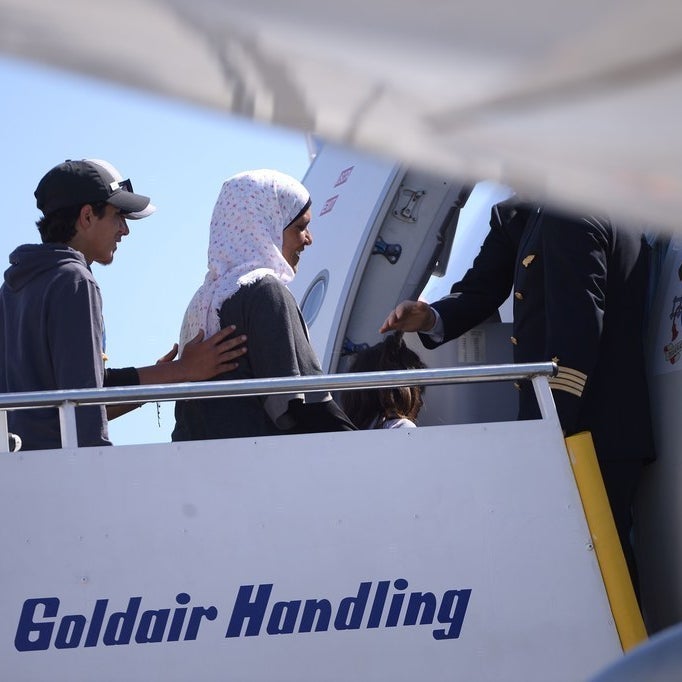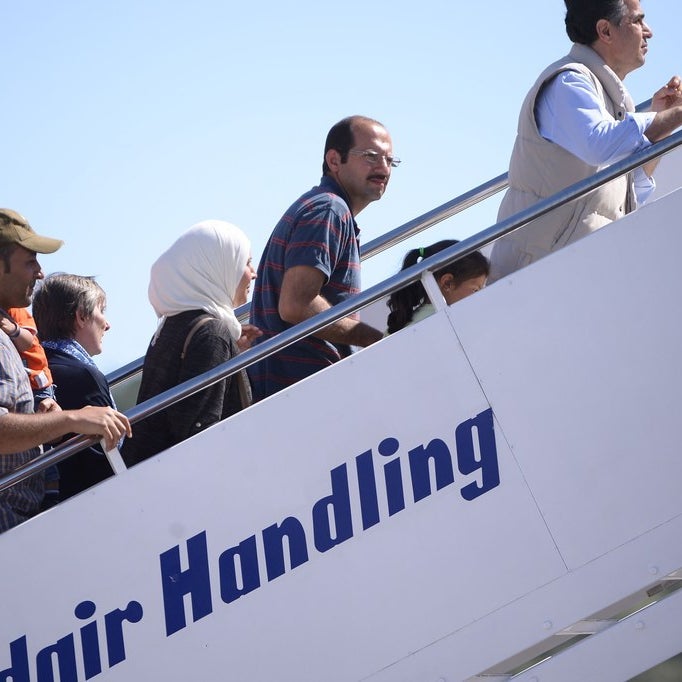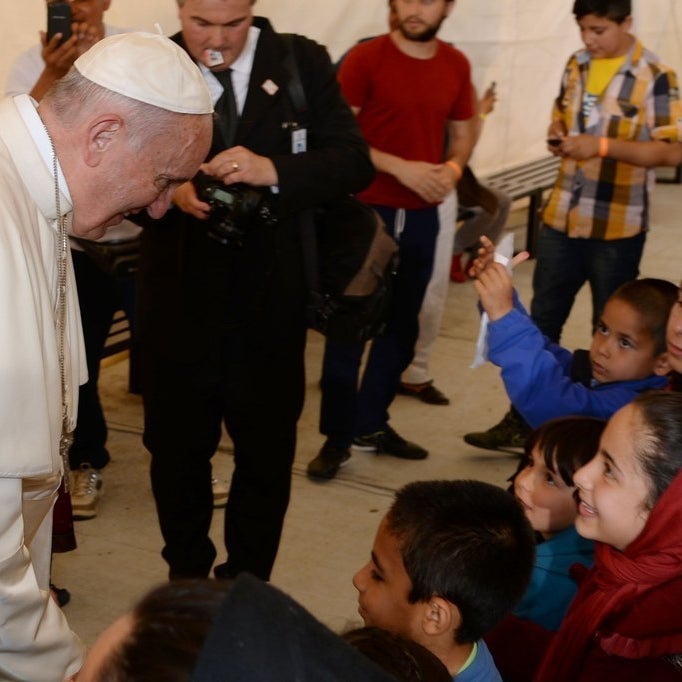Pope Francis has taken three Syrian refugee families back to the Vatican following his visit to the Moria refugee camp on the Greek island of Lesbos.

The three families of 12 refugees – six children, and six adults – were chosen at random, and have been at the camp since before the recent EU-Turkey deal which has left thousands stranded on Lesbos.
Two of the families are originally from Damascus and one is from Deir Azzor, the latter of which is occupied by ISIS. Their homes were all bombed.


All members of the families are Muslim, and will be cared for by the Vatican after they returned to Rome with the pope on his plane, a statement from the Holy See said.
Earlier on Saturday, Greek state television ERT reported that the Pope had offered to take 10 refugees back to Italy with him, according to the BBC, although Vatican spokesperson Rev Federico Lombardi did not comment on the issue.
This refugee family boarded Pope Francis's airplane. Awaiting details from Vatican
On the flight back to Rome, Pope Francis told journalists the decision to invite refugee families to join him at the Vatican was made around a week ago thanks to "last minute" inspiration from one of his collaborators.

"Everything was arranged according to the rules. They have their documents.
"The Holy See, the Greek government and the Italian government have checked everything.
"They have been welcomed by the Vatican and with the collaboration of the Saint Egidio community they will be searching for work," he said.

Pope Francis visited the island's Moria camp on Saturday, where more than 3,000 people who have fled devastation by ISIS and the Taliban are facing deportation to Turkey.

The pope said he wanted to address the human face of the refugee crisis, and while the Vatican insisted that the visit is entirely religious, it also highlighted the plight of thousands left stuck on Lesbos following the recent EU-Turkey deal.
Refugees are not numbers, they are people who have faces, names, stories, and need to be treated as such.
"We are going to meet the worst humanitarian catastrophe since the second world war," Pope Francis said.
"We will see many people who are suffering, who do not know where to go, who have had to flee."

During an address to refugees at Moria, Pope Francis called upon European leaders to address the crisis "in a way that is worthy of our common humanity," according to AP.
He urged refugees facing deportation to Turkey not to lose hope, appealing to the wider world to pay greater attention to those in need.
"The greatest gift we can offer one another is love: a merciful look, a readiness to listen and understand, a word of encouragement, a prayer," he said.
"We hope that the world will heed these scenes of tragic and indeed desperate need, and respond in a way worthy of our common humanity."


Pope Francis greets migrants and refugees at the Moria refugee camp on 16 April 2016.
Ecumenical Patriarch Bartholomew, who accompanied the pope to the camp, echoed his words in his address to refugees, as well as praising residents of Lesbos for their "sympathy and sensitivity" to those escaping the Middle East.

"We have traveled here to tell you that we care. We have traveled here because the world has not forgotten you ... we have wept as we watched the Mediterranean sea becoming a burial ground for your loved ones," he said.
"The world will be judged by the way it has treated you. And we will all be accountable for the way we respond to the crisis and conflict in the regions that you come from."
The pope was said to have joined some refugees at the camp for lunch.
Pope Francis described his visit to Lesbos as one marked by sadness, as he visited the site where so many victims of the refugee crisis reached the end of their journeys: the Mediterranean sea.

"Many people have drowned. I say this is not to be bitter, but so that your work today may express the feelings with which I am undertaking this journey," he told journalists traveling with him to Lesbos.
A minute's silence was observed during the pope's visit for those who have lost their lives trying to cross the sea.
Ahead of his visit to the camp, the pope met with Greek prime minister Alexis Tsipras, where they discussed the refugee crisis, and its particular impact on Lesbos.

In the meeting, the pope stressed "that the refugee crisis is a European and international issue calling for a comprehensive response that respects European and international law," a statement from the Vatican said.
The visit "comes at a pivotal moment", according to Gauri van Gulik, deputy Europe director at Amnesty International.
"Right as Europe is gearing up to send thousands of refugees back to Turkey, locking them up in the meantime in horrible conditions," Van Gulik said.
"These are people who fled the horrors of Islamic State, the Taliban, bombings in Syria and more. They deserve Europe's protection and care, and hopefully the pope can shed light on their plight."
